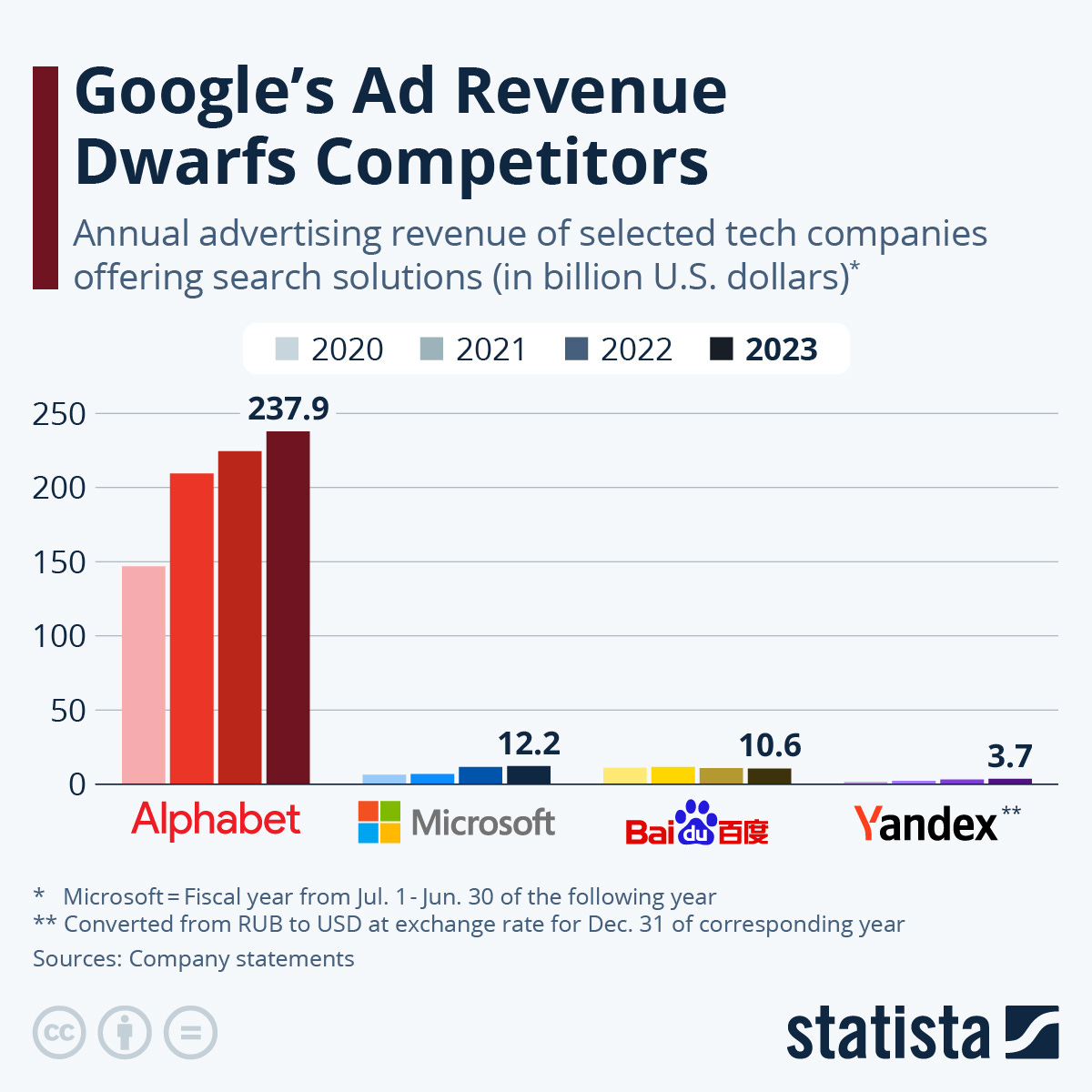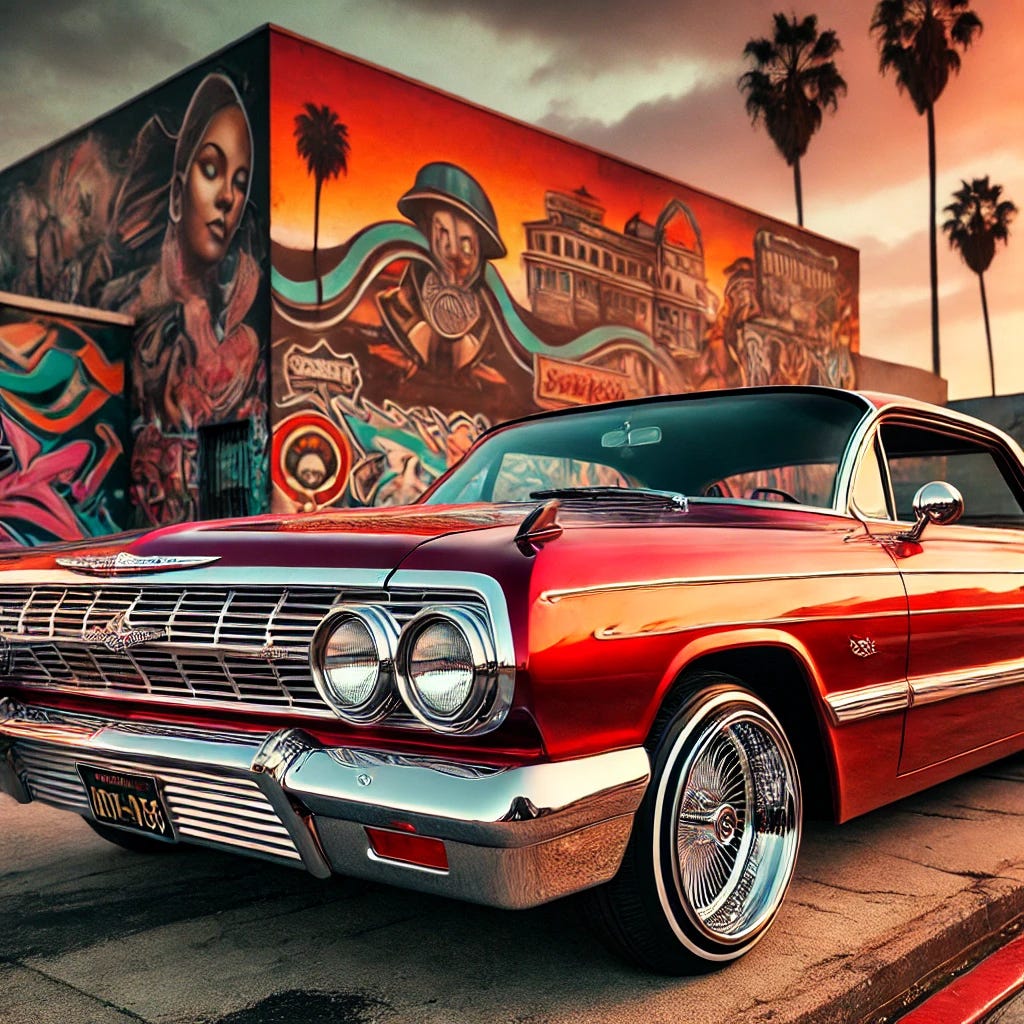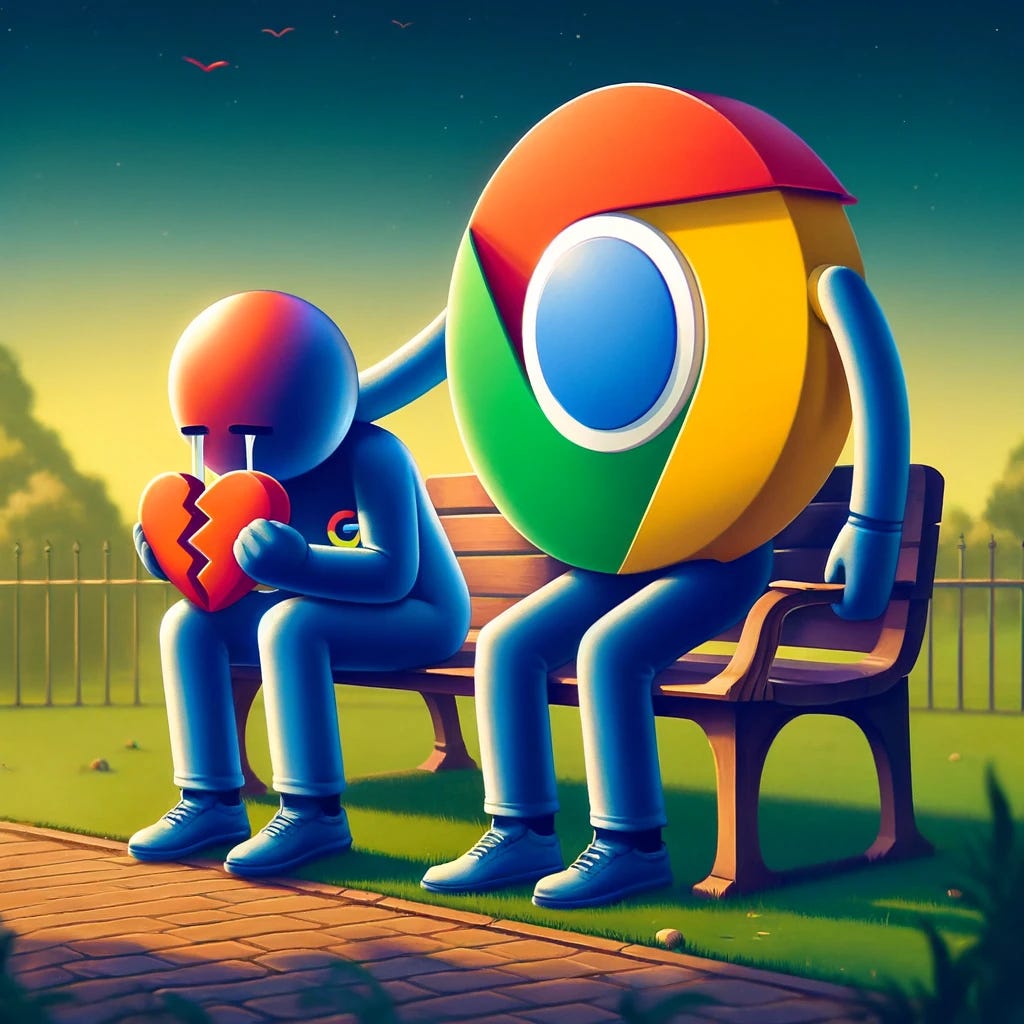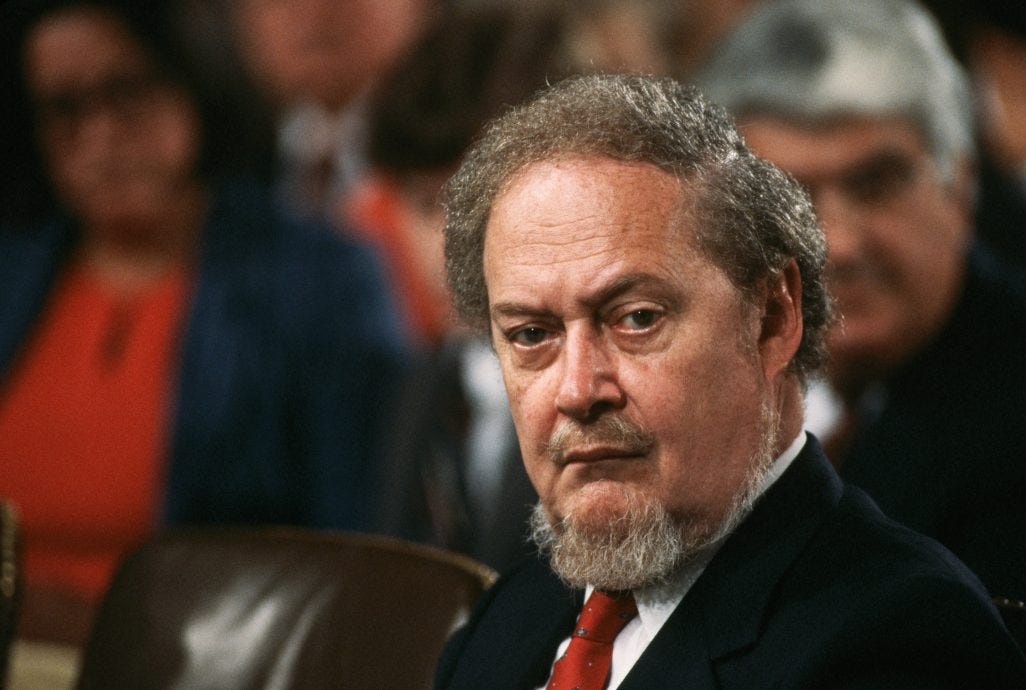There’s the age-old saying that “all good things must come to an end.” Tangentially related to that, the government is looking to dismantle the behemoth we all know as Google. Most consumers understand Google’s reach and impact - when you achieve “verb” status as a company you have a very wide audience and a deep spot in the cultural zeitgeist.
But those in advertising understand that Google’s hold on the ad space is - and we can say this legally now - monopolistic. The company’s acquisition of companies like Doubleclick and the launch into the programmatic space with subsidiaries like DV360 have made it an indispensable digital advertising tool regardless of budget size and brand goals. Now the government wants to break the leviathan up by forcing a spin-off of it’s Chrome browser - what would that mean for consumers and advertisers?
Chrome as the Linchpin
On the surface the idea of forcing Google to spin off its Chrome browser doesn’t seem that disruptive: it’s a free service for consumers so how could Google possibly be making that much money off of it? The reality is a little different.
The Chrome browser is one of the central tools in Google’s arsenal when it comes to advertising. When you sign into Gmail on Chrome, you’re signed into the Chrome browser itself, meaning any other actions you take on the browser can theoretically be tracked by Google. This allows Google to group you into audiences that advertisers are willing to pay more for, as those audiences are more likely to take an intended action with the brand if they can be exposed to compelling creative on the web given their known behavioral traits.
But it goes deeper than that. If a user takes the intended action for the brand, Google’s tracking is able to report back to the advertiser that someone took that action and give credit to Google’s advertising products as having driven the conversion. This shows the efficacy of those products (potentially over other, non-Google products), leading the brand to spend more money on the former because they work.
And this is just one example: being signed into Chrome increases the visibility across a multitude of Google products, including (but not limited to):
Doubleclick ad server
Google Ads
Search Ads 360
Display and Video 360
YouTube
Google Analytics (currently GA4, previously GA360)
If you took the same actions after being exposed to a brand’s digital advertising on a Safari or Firefox browser, the tracking would be extremely degraded in the best scenario and non-existent in the worst (the latter tends to be the base case in today’s open web environment.) Adding Chrome into the mix of the other products above gives Google the edge it needs to drive its other products, particularly its search and programmatic ones. With increased (visible) outcomes of these ad products, brands funnel more money into Google-based advertising, which has helped it become a nearly $240 billion advertising giant.

But, is the Consumer Being Harmed?
But Matt you ignorant slut - you might say - Google products are by and large free for the consumer, so why should anti-trust get involved? First, nothing in today’s world is free (except maybe libraries) and second, the DOJ is rightly evolving what their definition of monopolistic behavior is.
Let’s tackle the consumer as product - there is no free lunch in capitalism and Google is using the information from their users to sell targeted advertising to further their own revenue. The value exchange here is free use of things like Gmail, YouTube, and Google Search. You would be hard-pressed to argue that the consumer is being harmed here, even if that consumer doesn’t fully understand the machination behind this digital economy trade-off. Is the cost of switching onerous? Probably not, but with Google as the default it provides just enough inertia to keep them on top.
Google’s bigger problem is the fact that the government is evolving its stance on what monopolistic behavior looks like. The Robert Bork-inspired antitrust measuring stick is outdated (and, if we’re being honest, was ludicrous in its own time), but that’s what we have been taught - that even if a company is clearly monopolistic, if end-consumers aren’t harmed then the government should sit back and let it happen.
In reality, monopolies in capitalism are much more complicated than this simple heuristic put forth by weird beards and the Chicago School. Thus argues Tim Wu, who (taking a page from Bork’s originalism book) looks to the father of anti-trust in America - Louis Brandeis - who was more concerned with the overall welfare of the populace. While at first glance this might feel like a consumer welfare argument, it’s a bit more complex than that.
The concentration of wealth in a monopoly is bad for the general welfare of the country - regardless of how the end-consumer is treated at the transaction level, as Wu expertly argues. In America, wealth easily translates into power and these major corporations amass so much of it that it would allow non-democratic practices to flourish. After the legal abomination that is Citizens United, this can very clearly be seen in super PACs and, in the most simplest of examples, Peter Thiel’s sponsorship of JD Vance along with Elon Musk’s of Donald Trump.
So even if Google’s monopolistic behavior is not harming the end-consumer (which, again, appears to hold true), it still ought to be broken up under the Tim Wu and Louis Brandeis ethos of general civic welfare. It’s also why we’ve seen increased activity to avoid having to break up monopolies after the fact by blocking mergers at their outset (though to be fair, further consolidation in the airline space would undoubtedly further harm consumers who fly, and haven’t Spirit flyers been harmed enough?)
So Are We On a Break, Or…
Does Google deserve to be broken up? That’s for smarter minds to decide, but prima facie I’m more or less aligned with the government’s actions here. Consumer harm isn’t obvious or self-evident when it comes to Google, but the potential for the kinds of abuse we’ve already seen in the tech space are.
With the DOJ’s evolving view of antitrust to return to its Brandeis-ian routes after a Bork-ian aberration (the 70s were just a weird time), the argument against breaking Google up becomes much weaker. With apologies to Vincent de Gourney and Adam Smith, sometimes the invisible hand needs, well, a hand. If antitrust accelerated us out of the first Gilded Age, maybe it can help hamstring the one in which we currently find ourselves.
Grab Bag Sections
WTF Charities: No WTF this week - today is giving Tuesday and here are a couple of causes near and dear to this newsletter’s heart:
Libraries: I love libraries. Can’t get enough of them. I like to pop in to them when I travel just to see what others are doing in the space. Libraries, so hot right now. Donate to your local one - most take direct donations, but others have what are called “Friends Groups” - think of it like a PAC for libraries. But instead of an ambassadorship or a second-tier Cabinet position, you’ll get much better civic health for your city/town/village.
Anything helping kids. Honestly, I always saw kids as helpless little animals, dependent on their trusted adults to make it through life. After having kids of my own, it’s even more heartbreaking how vulnerable this population is and how much unspeakable evil is inflicted upon them either by circumstance or malice. Find a quality kids-focused charitable organization at a site like Charity Navigator and make a kid’s life a little better.
Volunteer! Writing a check is crucial for charities across the world, but so is volunteering. Look for a local soup kitchen or animal shelter or some other cause close to you and volunteer your time - I can’t think of a time I walked away from a volunteering opportunity and felt worse about it.
Album of the Week: As soon as December hits the calendar, it’s time for the Christmas songs and when I think Christmas music there is only one person I think of: Bing Crosby. It’s hard to overstate how big of a star Crosby was in his heyday - it was rumored that in 1948 Crosby’s recordings were responsible for half of all weekly hours of radio across the entire country.
The man revolutionized the way radio was done in America, heavily investing in the new technology of magnetic tape and reel-to-reel recording that the allies had found invading Germany, who had invented the technology to help drive the Nazi propaganda machine. He financed and spread the technology of videotape. He introduced Les Paul to recording, leading to the invention of multitracking (and modern music production.) On the side, Crosby had financial interests in oil wells, mines, ranches, the Pittsburgh Pirates, and Minute Maid orange juice.
Most people know Bing from his song “White Christmas” from Irving Berlin’s Holiday Inn. It was such a hot song Crosby and Berlin made a relatively meandering musical film about it years later. This week’s album is Merry Christmas.
The album is split nicely between two sides. Side A is your classic Christmas fare - “Silent Night,” “Faith of Our Fathers,” and, yes, “White Christmas.” Side B starts off with a fast-paced “Jingle Bells” with the Andrews Sisters, who also feature on “Santa Claus is Comin’ to Town” and “Mele Kalikimaka.” Keep an eye out for the banger “Christmas in Killarney.”
Get in the Christmas spirit with one of the best to do it.
Quote of the Week: “In the same way, we have learned that unless there be regulation of competition, its excesses will lead to the destruction of competition, and monopoly will take its place.” - Louis Brandeis








